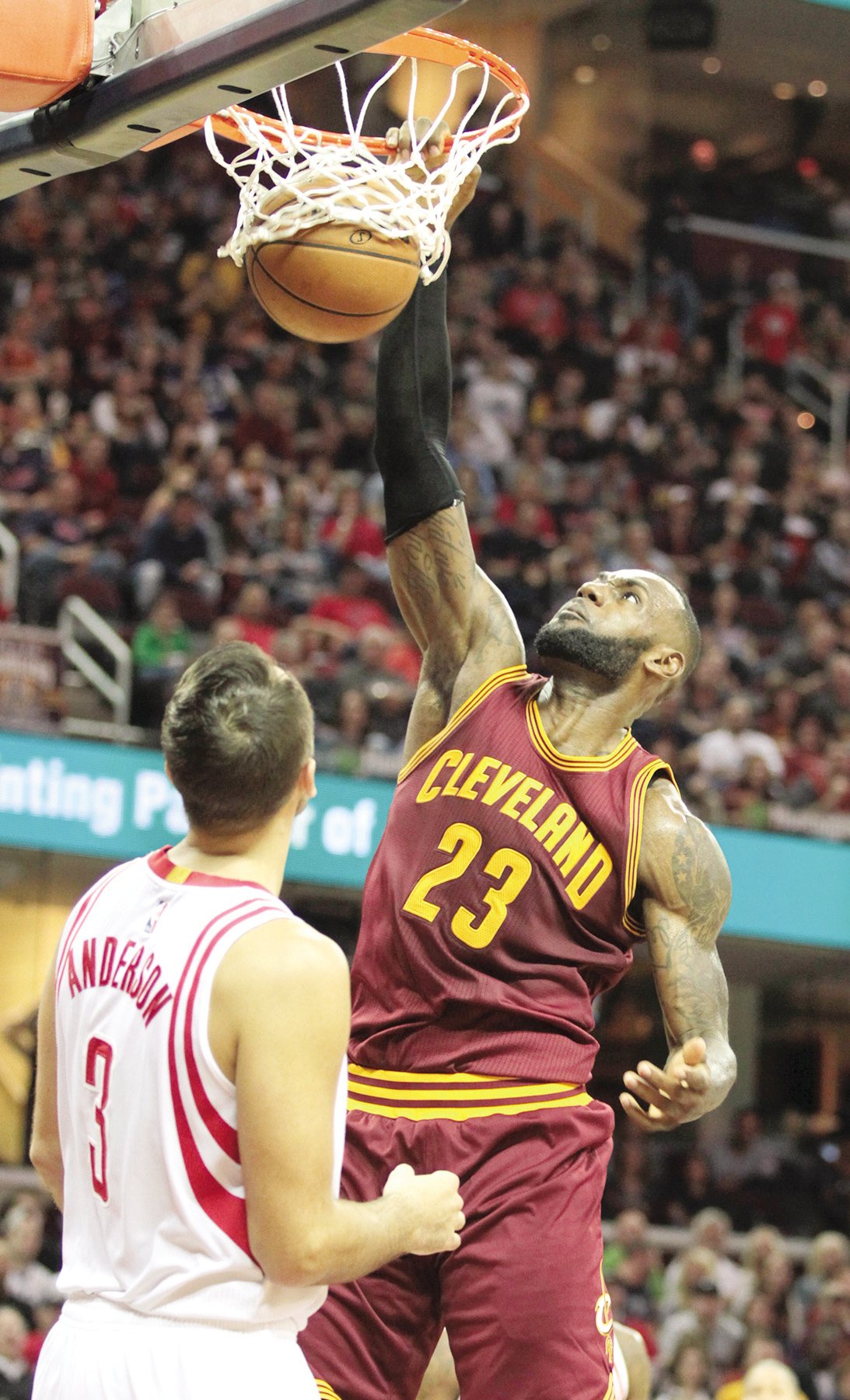Almost all basketball fans remember the LeBron James “Decision” saga during the summer of 2010, when he left his hometown Cleveland Cavaliers and joined forces with Dwyane Wade and Chris Bosh in Miami to form “The Big Three,” the NBA’s most fearsome trio of stars.
And we all remember what happened this past July, when Kevin Durant shocked the sports world and left the Oklahoma City Thunder — the only franchise he had ever known — to play in Oakland with two-time reigning MVP Stephen Curry, sharpshooter and lockdown defender Klay Thompson, as well as others like Draymond Green and Andre Iguodala.
The post-2010 NBA has been the era of the “super-team:” teams whose rosters are loaded with two, three or even four of the biggest stars in the league. First it was the Miami Heat. Then came the Cleveland Cavaliers, after LeBron returned from his stint in Miami. And now it’s the Golden State Warriors. In four of the six NBA Finals series since “The Decision,” one of these three teams has won it all.
Many fans enjoy watching these super-teams walk all over the other teams in the league. But the stunning lack of parity makes the sport far less exciting, especially when compared to the NFL. For example, over the last four years, perennial contenders like the San Francisco 49ers and Chicago Bears have been reduced to little more than laughingstocks, while traditional bottom-feeders like the Oakland Raiders and Seattle Seahawks have risen to prominence.
The NFL — despite the plethora of problems it faces — generates far more excitement than the NBA. Every year, excited fans tune in, unsure of what the playoff picture will look like. In the NBA, however, the playoff situation is a foregone conclusion, save for a few fliers here or there that sneak into the last few spots.
The 82-game season makes each individual game almost meaningless; the season’s length itself is a disincentive for fans to care. The NBA cannot let a lack of parity make the situation even worse.
I’d like to propose a solution: Eliminate the arbitrary, league-mandated maximum salaries for individual players.
Of course, the league cannot eliminate the team salary cap altogether; that would be catastrophic for parity. But it can eliminate the arbitrary caps on individual player salaries, which limit the salaries to a pre-determined percentage of the salary cap based on some combination of a player’s experience and accolades.
Essentially, I’m proposing that the NBA work more like a free market, of sorts. Working within the salary cap, players could freely negotiate with front offices around the league and receive compensation commensurate with their worth. Stars would not have their salaries arbitrarily depressed, and likewise, middling-role players would no longer benefit from arbitrary salary inflation.
Imagine how free agency may have played out over the last few years. James, Wade and Bosh would never have teamed up — no team could have paid all three salaries even remotely close to their true worth. LeBron may have still returned to Cleveland, but you can bet that one of Kyrie Irving or Kevin Love would not have joined him. And Kevin Durant would never have left Oklahoma City, because Golden State simply could not have afforded the yearly salary his skill set commands with so many other stars already on the payroll.
We prevent workers from being paid what they’re worth in very few industries. When excellent surgeons save their patients’ lives, we compensate them handsomely. When charismatic salespeople market their products effectively, we reward them with commissions. And when inspiring teachers help kids reach their full potential, we make sure they receive generous bonuses (or at least we should, but that’s another article entirely).
As a society, we generally recognize that those at the very top of their profession should earn far more than their average counterparts, and we generally allow the free market to determine what they’re worth. So why should we toss those ideas aside when it comes to basketball?
Unfortunately, the likelihood of such a change coming to fruition is remarkably low. The dozens of role players with inflated salaries would fight hard to ensure that individual salary caps remained in place. Without them, their compensation would be slashed dramatically. The handful of players who would personally benefit would be heavily outnumbered.
Yet I still believe the league should consider making a change. Super-teams just aren’t good for the league. It may be fun to watch them beat up on their hapless opponents, but it gets old, fast. For parity’s sake — for the league’s sake — it’s time we take the steps to kill them.
Contact Andrew Ziperski at ajzip ‘at’ stanford.edu.
